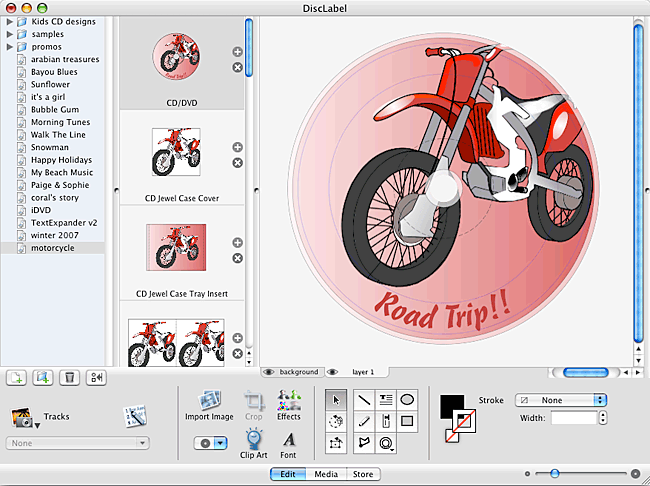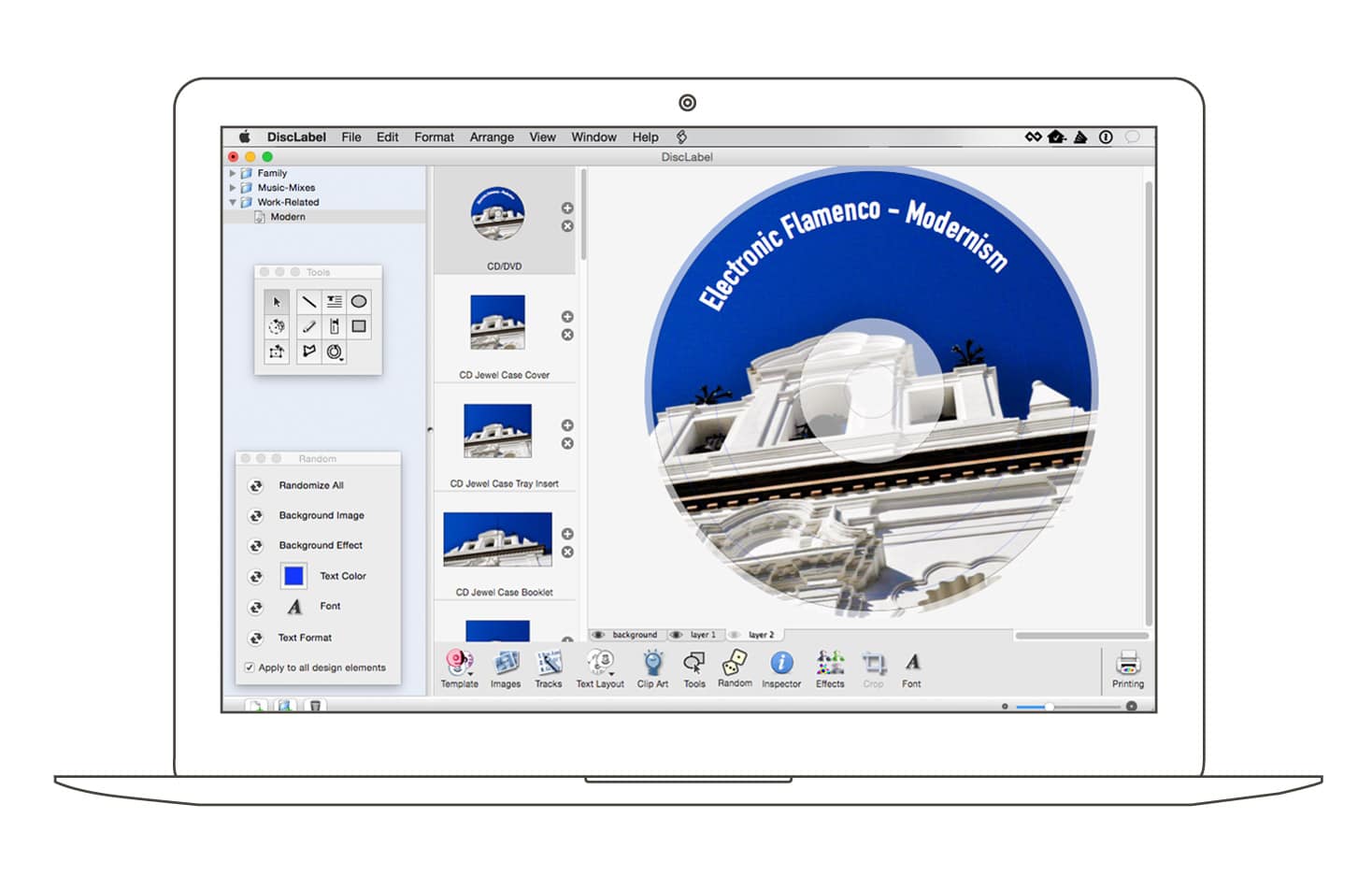


- DOWNLOAD DISCLABEL INSTALL
- DOWNLOAD DISCLABEL SERIAL
- DOWNLOAD DISCLABEL FULL
- DOWNLOAD DISCLABEL SOFTWARE
DOWNLOAD DISCLABEL SERIAL
I didn’t have to go into the ESC menu and choose the local disk in the boot manager, it seems to boot from disk automatically.įor some reason, the (recently fixed? 2) serial autodetection from EFI is not working correctly. (You might actually want to hard reboot here: for some reason on the first reboot from Linux, pressing the any-key to enter the prompt in the loader hangs the console for me.) It’s important to resize here, as FreeBSD does not do that and silently creates partitions that won’t persist across reboots gdisk /dev/vdaĪnd reboot. Now, fix the GPT: move the secondary table to the end of the disk and resize the table. Actually maybe use a release instead of CURRENT…) (Look for the newest snapshot, don’t copy paste the July 19 link above if you’re reading this in the future. Xzcat | dd if=/dev/stdin of=/dev/vda bs=1M There will probably be an old dbus-daemon, kill it.Īnd finally, unmount the old root and overwrite the hard disk with a memstick image: umount -R /oldroot Systemctl restart systemd-journald systemd-udevdĬheck that nothing is touching /oldroot: lsof | grep oldroot Sed -ibak 's/RefuseManualStart.*$//g' /lib/systemd/system/rvice Kill the old sshd process, restart or stop the rest of the stuff using the old disk: pkill -f notty Now reconnect to ssh from a second terminal (note: rm the connection file if you use ControlPersist in ssh config), then exit the old session.
DOWNLOAD DISCLABEL SOFTWARE
Lots of updates to 3rd party software included: Many evbarm kernels now use FDT (flat device tree) information (loadable at boot time from an external file) for device configuration, the number of kernels has decreased but the number of boards has vastly increased. Improvement and hardening of the memory layout: W^X, fewer writable pages, better consistency, better performance. Lazy FPU saving disabled on vulnerable Intel CPUs (“eagerfpu”). PopSS workaround: user access to debug registers is turned off by default. SpectreV4 mitigations available for Intel and AMD. Other hardware mitigations are also available. SpectreV2 mitigation: retpoline (support in gcc), used by default for kernels. Meltdown mitigation: SVS (Separate Virtual Space), enabled by default. Various WAPBL (the NetBSD file system “log” option) stability and performance improvements. Hardening of the network stack in general. The kernel option NET_MPSAFE is required to enable this. Parts of the network stack have been made MP-safe. Position independent executables by default for userland on: i386, amd64, arm, m68k, mips, sh3, sparc64.Ī new socket layer can(4) has been added for communication of devices on a CAN bus.Ī special pseudo interface ipsecif(4) for route-based VPNs has been added. PaX ASLR (Address Space Layout Randomization) enabled by default on: i386, amd64, evbarm, landisk, sparc64. PaX MPROTECT (W^X) memory protection enforced by default on some architectures with fine-grained memory protection and suitable ELF formats: i386, amd64, evbarm, landisk.
DOWNLOAD DISCLABEL FULL
They provide full symbol information for all base system and X binaries and libraries and allow better error reporting and (userland) crash analysis.
DOWNLOAD DISCLABEL INSTALL
While most install media do not come with them (for size reasons), the debug and xdebug sets can be downloaded and extracted as needed later. Reproducible builds (MKREPRO, see mk.conf(5)).įull userland debug information (MKDEBUG, see mk.conf(5)) available. Some highlights of the NetBSD 8.0 release are: This release brings stability improvements, hundreds of bug fixes, and many new features. The NetBSD Project is pleased to announce NetBSD 8.0, the sixteenth major release of the NetBSD operating system. NetBSD 8.0 available, FreeBSD on Scaleway’s ARM64 VPS, encrypted backups with OpenBSD, Dragonfly server storage upgrade, zpool checkpoints, g2k18 hackathon reports, and more.


 0 kommentar(er)
0 kommentar(er)
